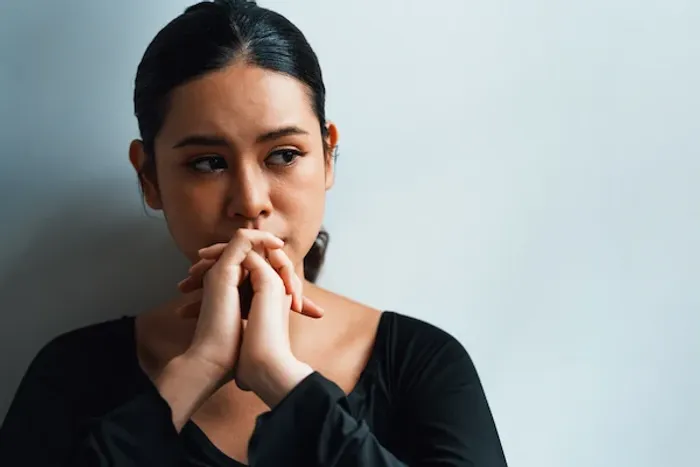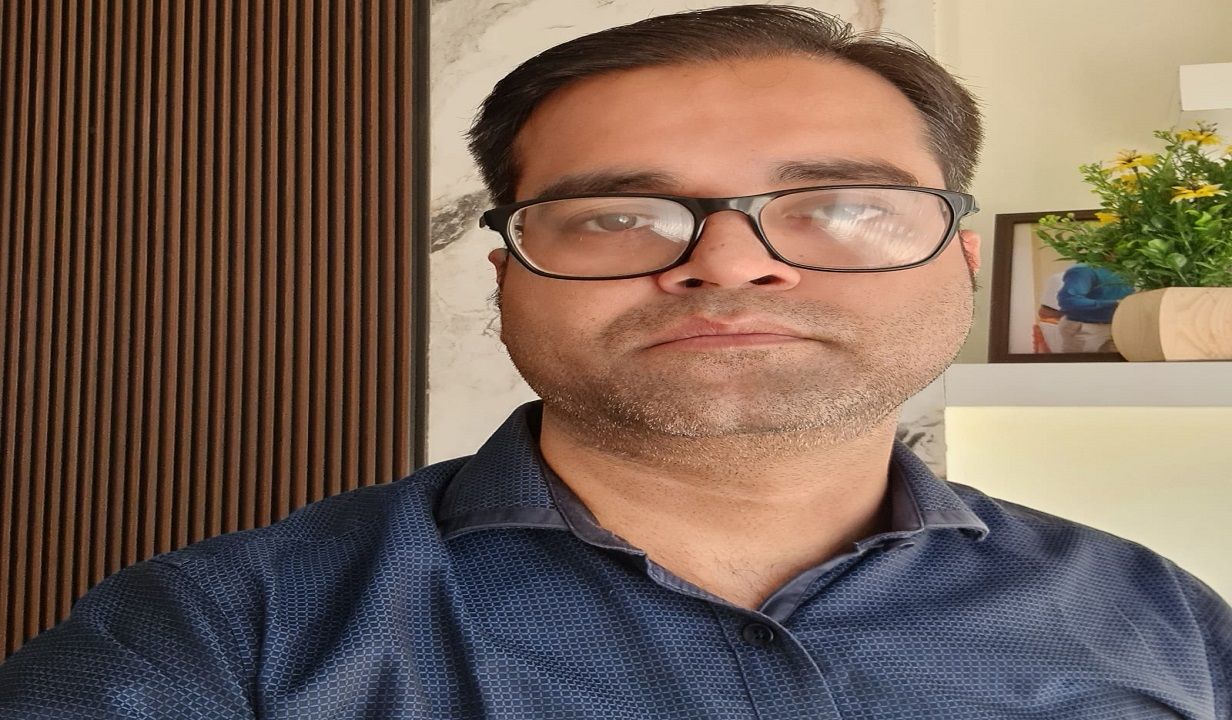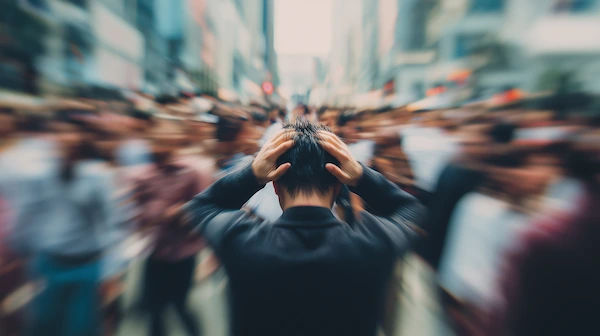Guide to Anxiety Disorders: Types, Symptoms & Treatment
Learn about anxiety disorders with this comprehensive guide. Explore types, symptoms, treatment options, and practical tips for managing anxiety effectively.


Introduction
Feeling anxious before a big presentation or a job interview is a normal part of life. But what happens when that worry becomes a constant, overwhelming presence that interferes with your daily life? You might be dealing with an anxiety disorder. This guide serves as a clear and compassionate introduction to anxiety disorders, one of the most common mental health conditions affecting millions worldwide. Far beyond simple nerves, these disorders are manageable medical conditions. Here, we will demystify what they are, explore the different types, identify the key symptoms, and outline the proven treatment paths available. Whether you're seeking answers for yourself or a loved one, this article aims to provide knowledge, reduce stigma, and offer hope by showing that effective help is within reach.
What Exactly is an Anxiety Disorder?
An anxiety disorder is a mental health condition characterised by excessive, persistent, and often irrational worry and fear about everyday situations. While everyone experiences anxiety—a natural response to stress—anxiety disorder is distinguished by its intensity, duration, and ability to disrupt normal functioning. It's not a character flaw or a sign of weakness; it's a legitimate medical condition involving complex interactions between brain chemistry, genetics, and life experiences.
Anxiety vs. An Anxiety Disorder: Knowing the Difference
Normal anxiety is situational and temporary. It motivates you to study for a test or sharpens your focus during a crisis. It fades once the situation passes. An anxiety disorder, however, is chronic and disproportionate. The fear response is triggered even when there is no real danger, or it is far more severe than the situation warrants. This constant state of high alert can be exhausting and debilitating.
How Common Are Anxiety Disorders? (Statistics)
To understand you are not alone, consider the data. According to the World Health Organisation (WHO), anxiety disorders are the most common mental disorders worldwide. In India, various studies suggest a prevalence of over 5-10% of the population. The Anxiety and Depression Association of America (ADAA) states that anxiety disorders are highly treatable, yet only about 37% of those suffering receive treatment. This highlights the critical need for awareness and education.
Consult a Psychiatrist for the best advice
The Many Faces of Anxiety: Common Types of Disorders
Anxiety isn't a one-size-fits-all condition. It manifests in several specific forms, each with unique characteristics.
Generalised Anxiety Disorder (GAD)
GAD is defined by chronic and exaggerated worry about everyday life—health, family, money, work—with no obvious reason. People with GAD anticipate disaster and are overly concerned about various issues, even when there is no sign of trouble. It’s often accompanied by physical symptoms like restlessness, fatigue, and muscle tension.
Panic Disorder
This condition involves recurrent, unexpected panic attacks—sudden periods of intense fear that may include palpitations, pounding heart, sweating, trembling, and feelings of impending doom. A key feature is the fear of having future attacks, which can lead to avoidance behaviours.
Social Anxiety Disorder (Social Phobia)
This is more than just shyness. It involves an intense, persistent fear of being watched, judged, or embarrassed in social or performance situations. This fear can be so severe that it disrupts work, school, and other ordinary activities.
Specific Phobias
These involve an intense, irrational fear of a specific object or situation, such as heights, flying, spiders, or needles. The level of fear is typically out of proportion to the actual danger and leads to avoidance of the trigger.
Recognising the Signs: Symptoms of an Anxiety Disorder
Symptoms can be both emotional and physical, often mimicking other health conditions.
Emotional and Cognitive Symptoms
Excessive worry or fear
Feelings of apprehension or dread
Irritability and restlessness
Difficulty concentrating ("mind going blank")
Anticipating the worst outcomes
Feeling tense or jumpy
Physical Symptoms of Anxiety
The body's "fight-or-flight" response is activated, causing:
Rapid heartbeat and palpitations
Shortness of breath or hyperventilation
Sweating and trembling
Headaches, fatigue, and insomnia
Gastrointestinal (GI) problems like nausea or diarrhea
Muscle tension and aches
If these physical symptoms of anxiety are frequent and unexplained by other medical conditions, it is crucial to consult a professional. You can consult a doctor online with Apollo24|7 for an initial assessment to discuss your symptoms.
Effective Treatment Pathways for Anxiety
The good news is that anxiety disorders are highly treatable. Most people benefit from a multi-faceted approach.
Psychotherapy: Talking It Through
Psychotherapy, or "talk therapy," is a foundational treatment. Cognitive behavioural therapy (CBT) is particularly effective. It helps individuals identify, challenge, and change distorted thought patterns and beliefs that fuel their anxiety, and develop healthier coping mechanisms and behaviours.
Medications for Anxiety Management
Several types of medications can provide symptom relief, often making psychotherapy more effective. These include SSRIs (selective serotonin reuptake inhibitors), SNRIs, and sometimes benzodiazepines for short-term use. A psychiatrist can determine the best medication based on an individual's specific needs.
The Power of an Integrated Approach
Combining therapy and medication is often the most effective strategy for moderate to severe anxiety. Additionally, lifestyle changes like regular exercise, a balanced diet, adequate sleep, and mindfulness practices significantly support recovery and build long-term resilience.
Self-Help and Coping Strategies for Daily Life
While professional help is essential, these strategies can empower you to manage day-to-day symptoms.
Lifestyle Modifications
Exercise: A powerful anxiety reliever. Aerobic activity releases endorphins and reduces stress hormones.
Diet: Limit caffeine and sugar, which can trigger or worsen anxiety symptoms.
Sleep: Prioritise 7-9 hours of quality sleep. Sleep deprivation exacerbates anxiety.
Mindfulness and Relaxation Techniques
Deep Breathing: Activates the body's relaxation response, countering hyperventilation and panic.
Meditation and Mindfulness: Helps you observe your worries without judgment, reducing their power.
Progressive Muscle Relaxation: Systematically tensing and relaxing muscle groups to relieve physical tension.
Conclusion
Understanding is the first step toward management and recovery. This introduction to anxiety disorders has outlined that these conditions are common, identifiable, and, most importantly, treatable. Recognising the difference between everyday worry and a clinical disorder empowers you to seek the right help. Whether through therapy, medication, lifestyle adjustments, or a combination, regaining control is absolutely possible. You do not have to manage these feelings alone. If the symptoms described resonate with you and are impacting your quality of life, take that brave next step. If your condition does not improve after trying self-help methods, book a physical visit to a doctor with Apollo24|7 for a comprehensive evaluation and a personalised path to wellness. A calmer, more manageable life is within reach.
Consult a Psychiatrist for the best advice
Consult a Psychiatrist for the best advice

Dr. Abhijit Chakraborty
Psychiatrist
8 Years • MBBS, DPM, MD Psychiatry
Kolkata
BIENETRE CLINIC, Kolkata

Dr. Aditya Nair
Psychiatrist
5 Years • MBBS, MD (Psychiatry)
Bansdroni
Siddhita Healthcare., Bansdroni

Dr. Debdatta Pati
Psychiatrist
18 Years • MBBS, DPM, MD (PSYCHIATRY)
Kolkata
MCR SUPER SPECIALITY POLY CLINIC & PATHOLOGY, Kolkata

Dr. Pratik Kumar
Psychiatrist
10 Years • MBBS,DNB-PSYCHIATRY
North West Delhi
DELHI GLOBAL MIND CLINIC, North West Delhi
(75+ Patients)

Dr. B. S. Kumawat
Psychiatrist
5 Years • MBBS, MD (Psychiatry) - NIMHANS
Sikar
Dr Bhawani Shankar, Sikar
(50+ Patients)




